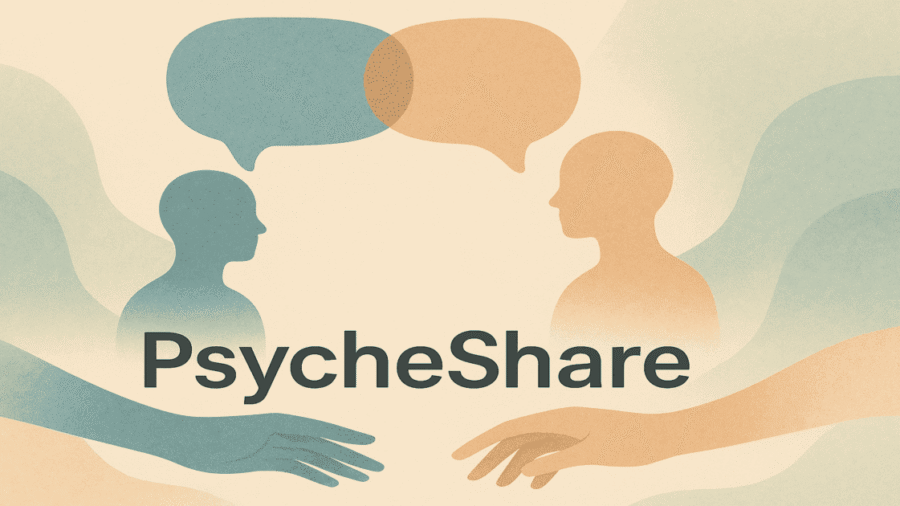If you had told me when I was 13 years old that one day I’d be standing on the steps of Harvard University, I would’ve laughed. Not because it was funny, but because laughter was the only thing I had left that didn’t cost anything.
I was born in Englewood, Chicago, in 2001. My mother, Denise, was a kind soul lost to the fog of schizophrenia. Some days, she thought she was a famous singer. Other days, she forgot who I was. My father, Ray, left when I was five. I still remember the sound of the screen door slamming the night he took off. It was the same night my mom poured cereal into an empty pot and tried to cook it on the stove.
By the time I was eight, I’d already been removed from my home twice by child services. By 11, I was in my third foster home. By 13, I was gone.
Surviving, Not Living
I ran away after a man in my foster home locked me in the basement for a weekend when I accidentally broke his phone. No food. Just a bucket and a single bulb. That was the moment I knew the system wasn’t going to save me.
I made my way to downtown Chicago, eventually settling under the 18th Street Bridge, near the South Branch of the Chicago River. The hum of the traffic above, the distant sirens, that became my lullaby.
I survived by collecting aluminum cans, digging through trash bins behind fast food joints, and learning which churches gave out food on which days. I made friends with an older guy named Tank, a Vietnam vet who taught me how to wrap my feet in plastic during the winter and how to keep rats away by sprinkling chili powder near your sleeping bag.
The hardest part wasn’t hunger or the cold. It was being invisible. People would walk right past me, sometimes step over me, and never make eye contact. As if my existence was an inconvenience.
But I had one secret weapon: a bookbag full of books I had collected from dumpsters and library discards. Tattered copies of To Kill a Mockingbird, 1984, Great Expectations. Reading gave me a place to go when the world offered me nowhere.
“I figured if I couldn’t change where I was, I could change who I was.”
One day in January 2018, it was so cold my fingers had turned purple. I wandered into Hope Street Shelter, a small, underfunded place that served hot meals and let people stay during the day if they didn’t cause trouble.
That’s where I met Mrs. Meyers.
She was in her 70s, a retired English teacher with a voice like warm tea and eyes that saw through you. I remember her reading a poem by Langston Hughes and asking, “What do you think he means by a dream deferred?”
I responded, without thinking:
“It dries up like a raisin in the sun… It means if you ignore a dream long enough, it dies — but not before it rots everything around it.”
She just stared at me, stunned. “What’s your name, son?”
That moment changed my life.
Mrs. Meyers started bringing me extra books. Then sandwiches. Then notebooks. She helped me fill out applications to an alternative high school, Chicago Excel Academy, and convinced the shelter’s manager to write me a recommendation. I had to take placement exams — in a room full of kids in hoodies and tough attitudes, I felt naked.
But I aced it.
Back in School: Becoming Elijah Again
At Excel Academy, I finally felt like Elijah again — not a statistic, not a street kid. Just me. I made a deal with myself: No excuses. Ever. I sat in the front row. I turned in every assignment early. I begged for extra credit.
I joined the debate team, even though I had stage fright. My first debate was about the prison-industrial complex. I cited Michelle Alexander’s The New Jim Crow and won.
During my senior year, I wrote a piece about youth homelessness titled, “Sleeping With One Eye Open”. It was published in the Chicago Tribune’s youth column. That piece was my heart cracked open on paper.
By then, Mrs. Meyers had launched a GoFundMe to help me with housing and supplies. People across the country donated. Some sent letters. Others offered jobs. I cried reading them.
One message said:
“I grew up in the system too. You’re the hope I wish I had.”
I applied to 12 colleges. The essay prompt for Harvard asked, “What is something you’d like us to know that doesn’t appear elsewhere in your application?”
I wrote:
“You can survive anything if you believe your story isn’t over.”
I was sitting on the shelter steps when the email came in.
“Congratulations, Elijah. We are thrilled to welcome you to the Harvard Class of 2024.”
I didn’t scream. I didn’t run. I just whispered, “I made it,” and watched the river flow beneath the bridge that used to be my bed.
At Harvard, My major is in Sociology. I study the very systems that failed me — foster care, juvenile justice, urban education. I intern with nonprofits and return to Chicago every summer to mentor youth.
After this, I’ll start my Master’s in Education Policy.
To PsycheShare Community
I share my story to light the path for someone else who might be stuck under their own version of a bridge right now.
I want you to know:
You are not your trauma.
You are not your zip code.
You are not your pain.
You are the author of your own story. And if I could write a new chapter in the darkness, you can too.
Your circumstances may explain you — but they do not define you.
Elijah Carter
Survivor. Scholar. Still climbing.



Add a Comment